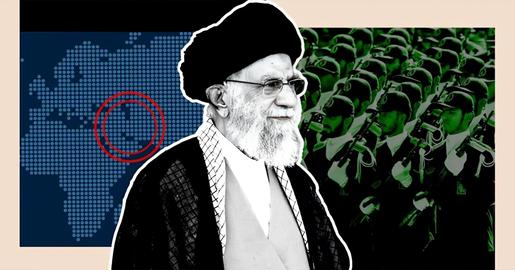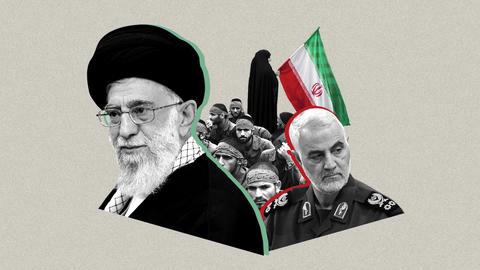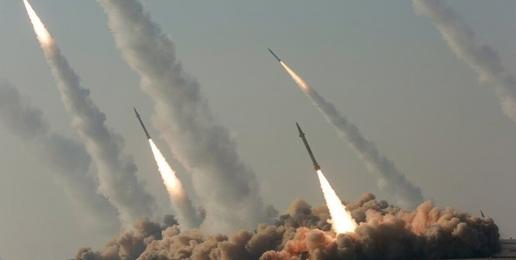Three US soldiers were killed in Jordan in a drone strike carried out by Tehran-backed militia last Monday. Will this lead to a second military attack on Iranian territory after Pakistan launched airstrikes earlier this month on Iran’s southeastern province of Sistan and Baluchistan?
President Joe Biden has expressed his intention to respond to the attack in Jordan, with Republican politicians calling for a robust reaction against the Islamic Republic.
The Islamic Revolutionary Guard Corps (IRGC), acting on behalf of the Islamic Republic, has been providing training and equipment to militia groups across the Middle East for over two decades, aiming to engage in proxy wars with the United States and Israel.
By using these proxy groups against the US and Israel and targeting their interests in the region, the Iranian government seeks to shield itself from the consequences of its actions.
Supreme Leader Ali Khamenei refers to these groups as the "axis of resistance," which includes the Houthis in Yemen and various militia groups in Iraq, Syria and Lebanon.
The Islamic Republic exercises effective control over these groups, providing financial support, training and weaponry.
Following the escalation of the conflict between Israel and Hamas, these proxy groups have intensified their attacks on American interests in the region and Israeli targets.
The Iranian government's supporters view these attacks as effective, believing they contribute to a perceived decline in American power in the region.
In the eyes of some Iranian officials, the proxy nature of this conflict puts the Islamic Republic in a secure position.
Khamenei has warned that if Israel continues its operations in Gaza, Tehran would not be able to control the "axis of resistance" – a clear and possibly unintended admission of the Iranian government's effective control over militia groups that have attacked American interests in Syria, Iraq, and Jordan over 160 times in recent months.
The United States considers the killing of its citizens as a red line, with both the Democrats and Republicans historically responding with strong military actions to such incidents.
The killing of a non-American contractor associated with the US in Iraq led to a US airstrike that killed Qassem Soleimani, the commander of the IRGC’s Qods Force, near Baghdad in January 2020.
The Iranian government is cognizant of the US red line. In response to the killing of Soleimani, it launched a missile attack on a part of an American base in Iraq that didn’t house any soldiers.
Now, three Americans have lost their lives in an attack orchestrated by militia groups supported by the Islamic Republic.
The Biden administration faces a challenging decision-making process to determine its "decisive response."
Given that the attack was not directly carried out by the military of the Islamic Republic, a "proportionate response" would typically target the interests of the same militia groups in Syria and Iraq.
However, previous analogous reactions from the United States failed to dissuade or halt the activities of these groups.
Directly targeting a part of Iran's territory where civilians reside is not a viable option.
Yet, if the United States interprets the killing of its nationals in Jordan as a direct assault on American interests by a group effectively controlled by the Islamic Republic, it might consider seeking direct retribution from Iran as a legitimate military objective.
John Kirby, the US National Security Council spokesman, declared that the United States will deliver a "very consequential response" to the Islamic Republic, while emphasizing the US reluctance to engage in a full-scale war and open a new front in the Middle East.
This level of warning could signify the US determination to inflict a substantial blow on the Islamic Republic.
If the US response mirrors its past actions, it may encourage the Islamic Republic and its proxy groups to persist in their attacks.
On the other hand, if the US military response is similar to what it did near the end of the Iran-Iraq war, it would be the second time, after Pakistan's military attack, that Khamenei permits a foreign military aggression against Iran.
In the 1988 Operation Praying Mantis, the United States not only inflicted significant losses to the Iranian Navy, which was disrupting commercial shipping, but also destroyed three Iranian oil platforms in the Persian Gulf used for military purposes.
The extent and severity of the potential American reaction in the coming hours will likely set the stage for a new period of heightened tensions between the two countries.
visit the accountability section
In this section of Iran Wire, you can contact the officials and launch your campaign for various problems






















comments